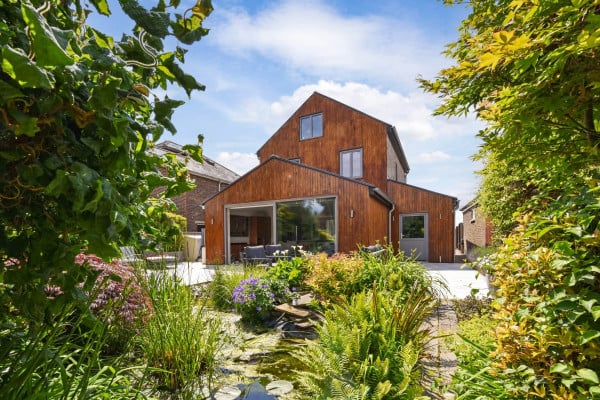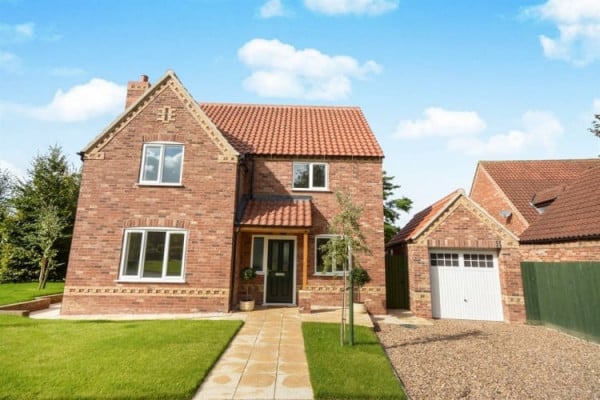What Types of Extension Are There, And Which One is Right for You?

There are a variety of ways to increase your living space and sometimes it is difficult to ascertain which route would be the best to take. Firstly, it’s important to consider your motivations for extending and what you are trying to achieve. If the aim is to maximise the space for your family, that’s a different proposition to boosting the equity in your home for the purposes of selling.
In the aftermath of the Covid-19 pandemic, homeowners have come to regard their properties differently. The switch to more hybrid and remote working practices means that our homes have to serve a variety of purposes. While adding equity is always a bonus, homeowners should be wary of extending purely to appeal to prospective buyers and should instead prioritise the flow of their property and how it enhances family life.
Building an extension is a step nobody should take lightly. No matter which type of project you embark on, it will inevitably come with a significant cost and disruption to everyday life. It is crucial to ensure that you choose the right option to avoid regrets further down the line.
So, which options are there and how can you make the right choice for your property?
A Single Storey Extension
If your property has a large amount of outdoor space and the garden will not be disadvantaged by a reduction in size, you might wish to consider a single storey extension. Increasing the downstairs quarters lends some versatility to the space; it could be used to increase the size of the kitchen or create an open plan living area. Open plan living is a great option for young families, as well as those who like to entertain.
It is difficult to determine exact costs for a single storey extension – if this includes installing a new kitchen or bathroom, or the shape is a little trickier, these factors will bump up the price. However, homeowners should budget at least £40,000 and could be looking at as much as £90,000.
Conservatory or Sunroom
Conservatories experienced a significant boom in popularity throughout the 1980s and with good reason. Coming in at a significantly lower cost than traditional extensions, they were an inexpensive way to add space to a property. However, they do have their drawbacks; the glass roofs lead to an uncomfortably warm space in the summer and a cold one over the winter.
This particular type of extension may not be as fashionable as they once were, but if they are to your taste you can expect to pay up to £20,000 to install one.
Loft Conversions
Converting the loft in a property is always an attractive option as it does not involve extending out with further building work. The flexibility of this added space can lend itself to a beautiful master bedroom suite, an office or a den for teenage children.
As appealing as these options are, not every home is suitable for a loft conversion. There are strict regulations which have to be adhered to, meaning that a loft conversion is not always a viable option; there may be a lack of available headroom, or the roof structure may require remodelling which isn’t always approved under planning permission. A property’s foundations also need to be robust enough to support the added weight.
On average, a loft conversion comes in at around £50,000.
A Garden Office or Summer House
If a back garden has plenty of space for a garden office or summer house, these spaces have become increasingly popular. Negating the need to extend from the main building, installing them requires much less disruption to daily life.
The versatility of an addition like this can improve the options for the available living space. Depending on your needs, however, this is a blank canvas and there will be a financial outlay for installing electricity, heating and broadband connections. You can expect to pay up to £30,000 to add an extension like this.
However you choose to extend your property, it will involve a certain amount of upheaval and cost. It is essential to weigh up the pros and cons of each and how they can enhance daily life before undertaking any building projects. All of these additions will boost the value of a property, but homeowners should be clear on what they are hoping to achieve.
Header image is from Uvie Farm which is for sale in Newtonmore. You can book a viewing at Property for Sale in Uvie Farm, Newtonmore | Emoov.

Selling This Spring? Here’s How to Get Ahead of the Competition
26.02.2026Spring is one of the busiest times to sell, but more listings mean more competition. Here’s how to price, photograph and position your home to stand out and secure early offers.
.png)
Sell or Let Your Property Yourself – Why More UK Homeowners Are Choosing to Go Online
03.02.2026Selling or letting a property no longer has to mean handing over thousands of pounds to a traditional estate agent.
.png)
Before You List: Watch Emoov’s Top Tips for Home Sellers
20.01.2026Thinking about selling your home? Before you list, it’s worth taking a few minutes to watch this short video from emoov, where we break down the key steps every seller should take before going live online.
.png)
A Step-by-Step Video Guide: Uploading a Property
23.12.2025This guide explains how to upload your property listing on Emoov, with a step-by-step video and expert tips on photography, presentation, floorplans, descriptions and video tours to help you get your home live quickly.

Selling Your Home? Here’s What You’ll Need to Have Ready
28.11.2025Thinking of selling your home yourself? Before you dive into viewings and negotiations, make sure your paperwork is in order.

Has Your Home Increased in Value? What 2025 Property Prices Mean for Sellers
30.10.2025Homeowners across the UK are asking the same question: has my property increased in value over the last few years? With new figures showing that over a million homes have jumped by more than 50% in value since 2020, it might be time to take a closer look. Whether you're considering selling, remortgaging, or just curious, here's how to understand your home's worth in today's market.









